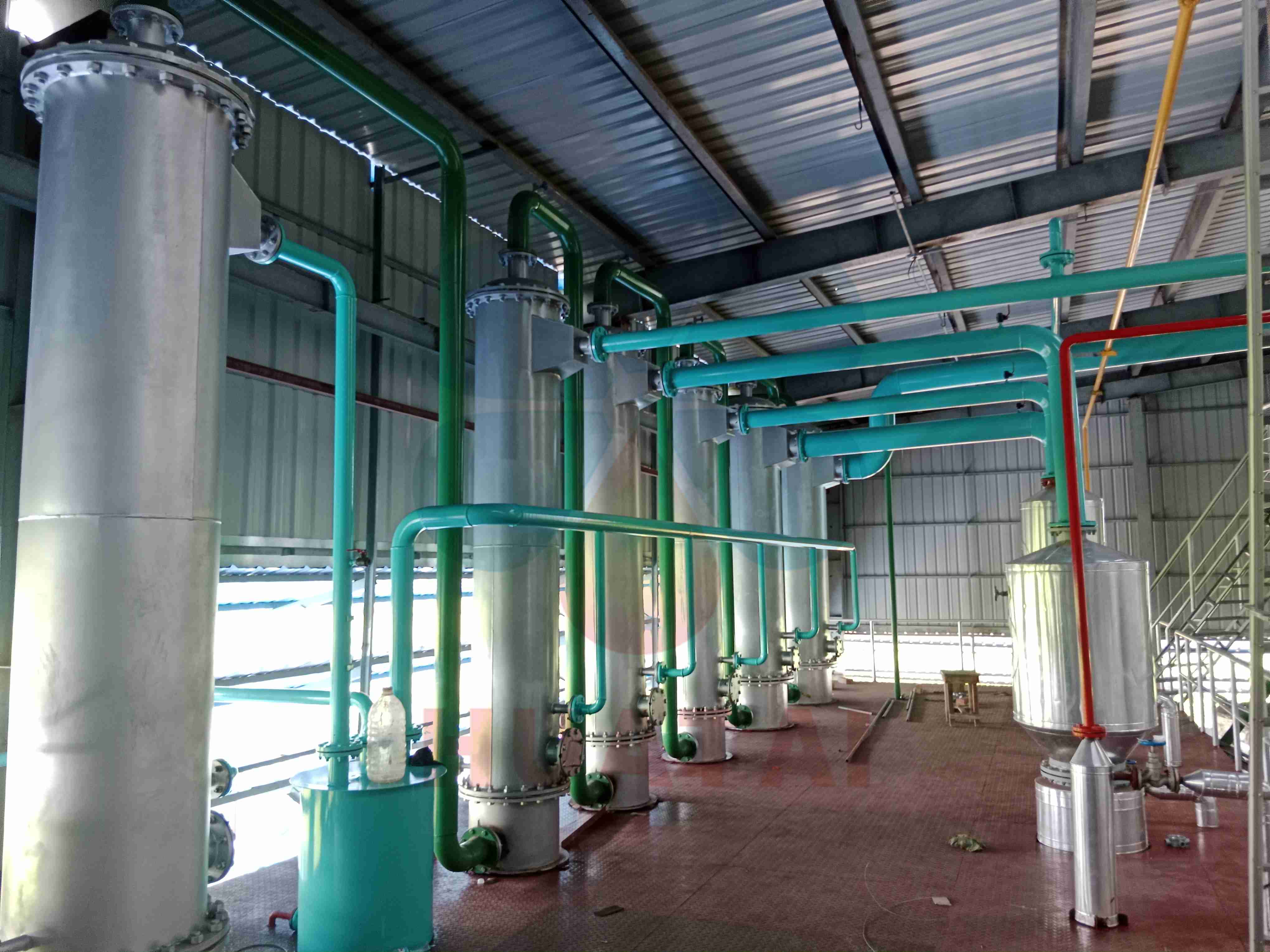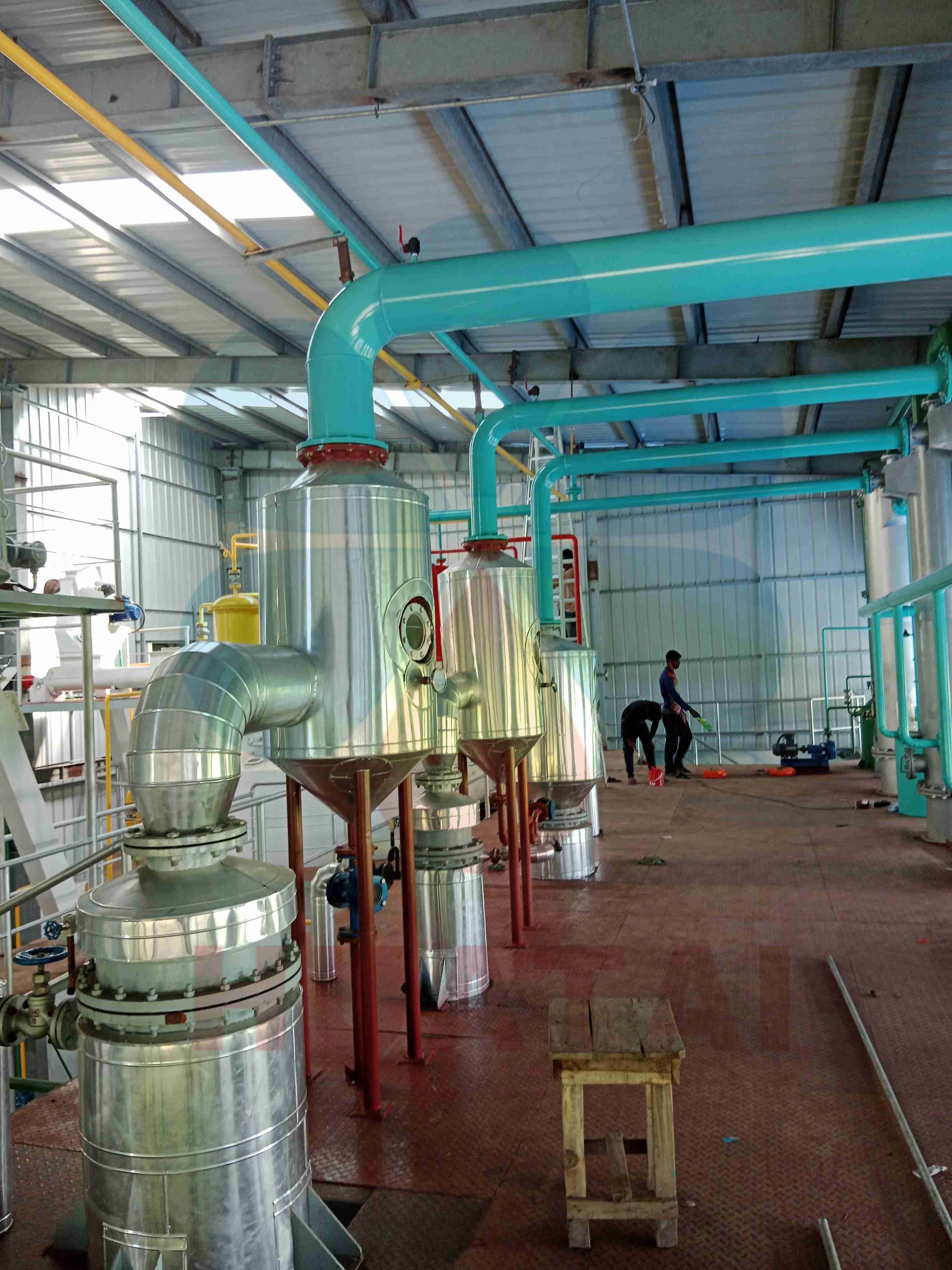There are two methods of extracting edible oil: the pressing method and the extraction method.
The pressing method uses physical pressure to separate oil from oilseeds. Originating from traditional oil workshops, the pressing method has now been industrialized. This method retains most of the oil's natural components since it doesn't involve the addition of any chemicals. However, its disadvantage lies in the relatively low oil yield.
In contrast, the extraction method, a more modern process, employs solvents that meet national standards. This method utilizes the solubility between the oil and the chosen solvent to extract and dissolve the oil by bringing it into contact with the processed solid oilseeds. Strict procedures are then used to remove solvents from the extracted oil. Compared to the pressing method, the extraction method results in lower residual oil in the oil meal, higher oil yields, lower processing costs, better production conditions, and a more efficient utilization of oilseed resources.

Each method is suited to different types of oilseeds. In China, there is a wide variety of plant oilseeds, each with differing chemical compositions, content, and physical properties. The pressing and extraction methods are therefore applied to specific raw materials. Generally, high-oil-content oilseeds, such as rapeseed, are processed using a pre-pressing followed by extraction method. Low-oil-content oilseeds, like soybeans, are processed directly using the extraction method. For certain oilseeds that produce oils with special flavors, the pressing method is preferred to retain the oil's original flavor, such as sesame oil and peanut oil.
The different processes also result in variations in the oil's flavor. Pressed oils usually undergo only basic acid and gum removal. These oils retain the natural aroma of the raw materials (e.g., peanuts) and align more closely with Chinese taste preferences. On the other hand, extracted oils must go through procedures like acid removal, gum removal, decolorization, and deodorization, which can eliminate undesirable flavors like the beany smell.
Both types of oil must undergo refining before they are ready for consumption. Crude oil extracted by pressing or solvent methods contains significant amounts of gum, free fatty acids, and colored substances, and cannot be consumed directly. It can only serve as raw material for refined oil products. To ensure consumer health, crude oil must be refined through processes such as water washing, alkali washing, acid removal, decolorization, and deodorization. These procedures produce refined oil that is lighter in color, clear, and meets the standards for different grades of oil, making it suitable for sale.
The quality of edible oil is not determined by the production process but rather by the degree of refining and adherence to strict standards during production.
Huatai Oil Machinery provides good quality oil mill plant, time & fast delivery, perfect after-sale services, and reasonable price, contact us!
Website: https://www.huataioilmachine.com/Copyright @ Henan Huatai Cereals And Oils Machinery Co.,Ltd.